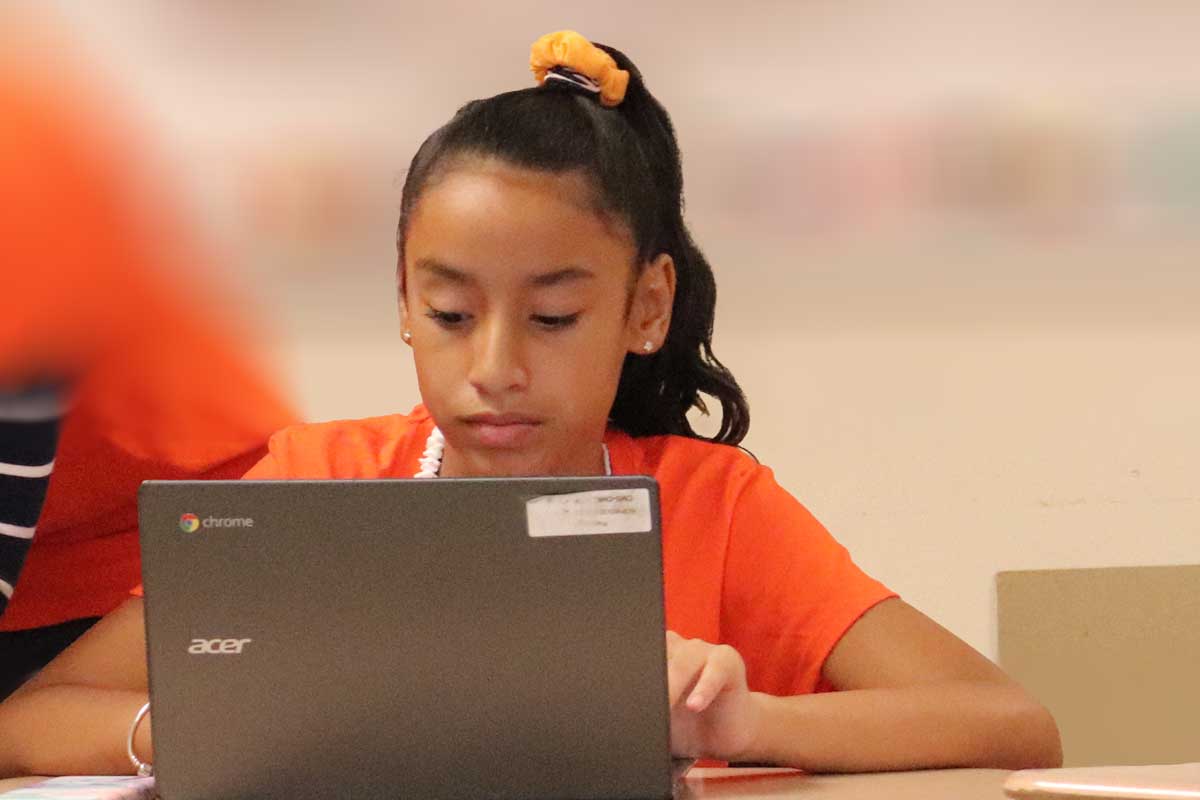
Researchers from the Youth, Media & Wellbeing Research Lab at the Wellesley Centers for Women are looking for middle school girls to participate in a free virtual summer learning program that begins on July 19, 2021. The 4-day program, hosted in partnership with the Computer Science Department at Wellesley College, will introduce girls to STEM (science, technology, engineering, and math) concepts and teach them about healthy social media use.
“This workshop gives middle school girls the opportunity to examine the role of technology in their lives,” said Dr. Linda Charmaraman, a co-leader of the workshop, senior research scientist at WCW, and director of the Youth, Media & Wellbeing Research Lab. “Our aim is to help them develop tools to use platforms like TikTok or YouTube in healthier ways that allow them to examine their identities while supporting their overall wellbeing.”
Throughout the workshop, students will learn from expert speakers—with Wellesley College students as co-facilitators—about STEM, digital citizenship, and developing positive online behaviors. TIME’s 2020 Kid of the Year, Gitanjali Rao, a 15-year-old inventor, author, scientist, and engineer, will serve as one of the speakers. Attendees will get a free copy of her book A Young Innovator’s Guide to STEM. The workshop is also part of a research study on how young teens use social media.
Dr. Charmaraman and Dr. Catherine Delcourt, assistant professor of computer science at Wellesley College, will hold small and large group discussions, conduct STEM exploration activities, and ask students to use digital storytelling techniques to share their experiences.
The remote workshop will run from July 19 to 23, 1:00 - 3:30 p.m. EST. Parents can learn more and register their child for the workshop by completing a short online application.
Last summer, Dr. Charmaraman and her colleagues held a similar virtual workshop for middle schoolers of all genders. In surveys afterward, girls reported increases in the importance of sharing about their abilities, achievements, and future career plans online and feeling of belonging in online communities. They also reported an increase in their belief that they are good at computing and that learning about technology will give them many career choices. And they experienced significant increases in self-esteem and agency.
When asked what advice they would give to their peers using social media, one participant said, “I think I would tell a friend that social media should not make you feel bad about yourself. Sometimes it does make me feel bad when I see other girls all having fun and posting and I am not included. Sometimes I feel like I should post stuff too. I am special and have my own special talents.” Because of these impactful results, the workshop this year will be targeted specifically at girls.
The idea for the workshops grew out of an ongoing research study of the Youth, Media, and Wellbeing Research Lab led by Dr. Charmaraman and funded by the Eunice Kennedy Shriver National Institute Of Child Health & Human Development of the National Institutes of Health. The aim of that project is to determine the longer-term health and wellbeing effects of social technologies, including smartphones, social media, YouTube, and gaming.
“By participating in this workshop, students will gain skills that can improve their self-efficacy around technology use as well as contribute to research that will inform how educators, policymakers, pediatricians, and families address early adolescent social media use and its impact—both positive and negative—on youth development,” said Dr. Charmaraman.
Apply for the Summer 2021 Workshop
April 26, 2021

